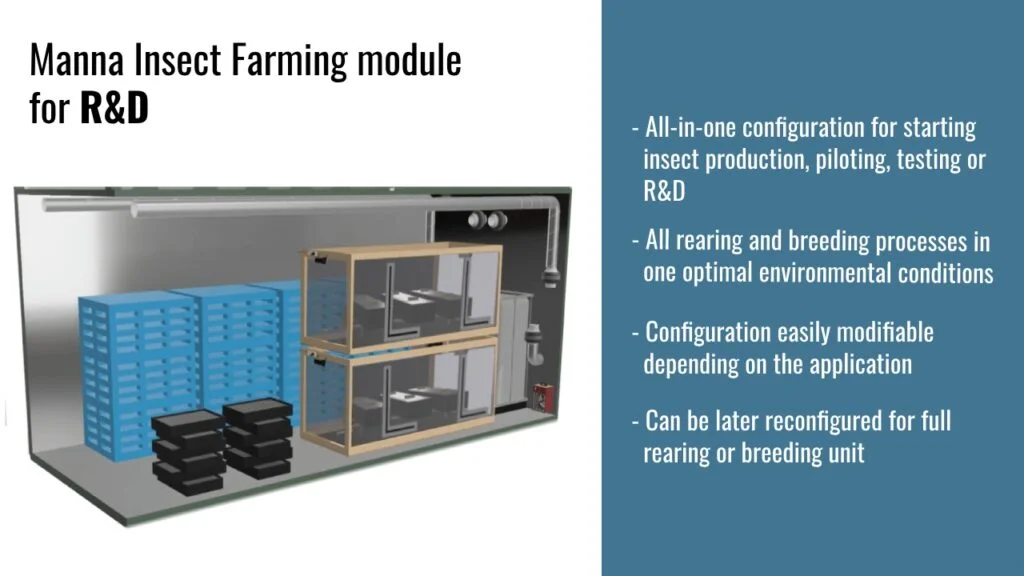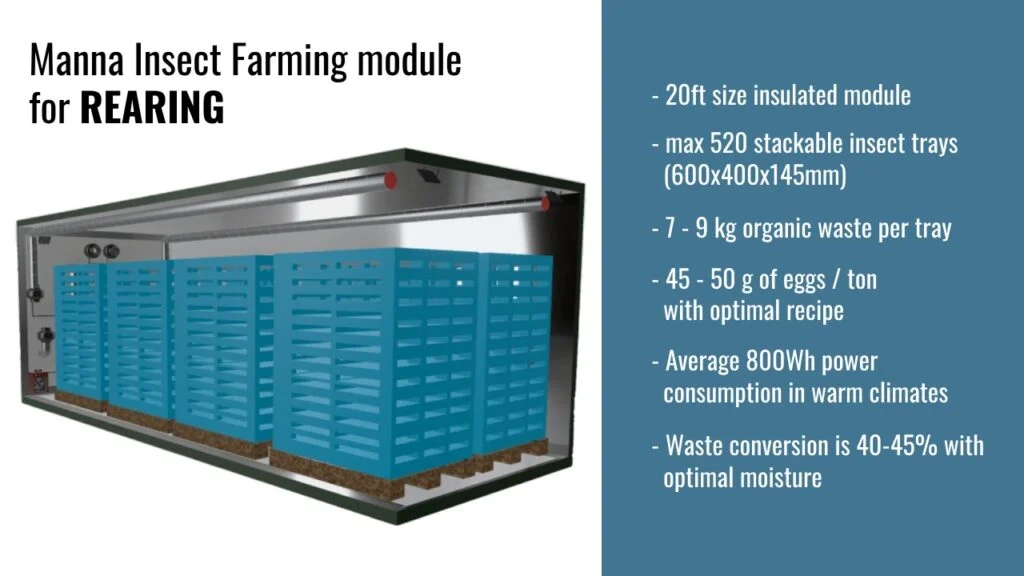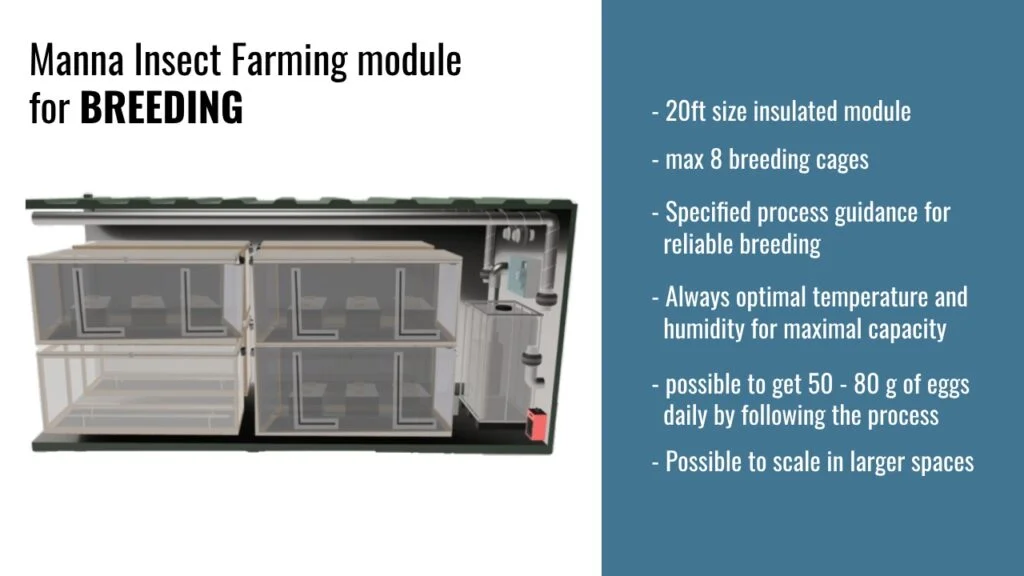Build SCALABLE BSF production site locally
Manna Insect's proven and verified solutions provide the most cost-effective and risk-free opportunities for piloting and testing substrates and business models.
Build 100% effective BSF growing environment within weeks to get systematic results
Manna Insect has spent 7+ years developing cost-effective BSF farming modules. Now, we provide the expertise to help anyone start systematic and efficient BSF farming without climate risks.
We aim to avoid offering turnkey solutions and unnecessary transportation to ensure 100% sustainability. Instead, we encourage customers to take responsibility for building and assembling containers and modules locally, guided by Manna’s comprehensive instructions and support.
Insect Farm Hub provides comprehensive guidance along with a detailed bill of materials.
Why Climate Control Is Crucial
Manna Insect reference models
Example production capacity achievable in one rearing cycle with reference farming module and quality substrate
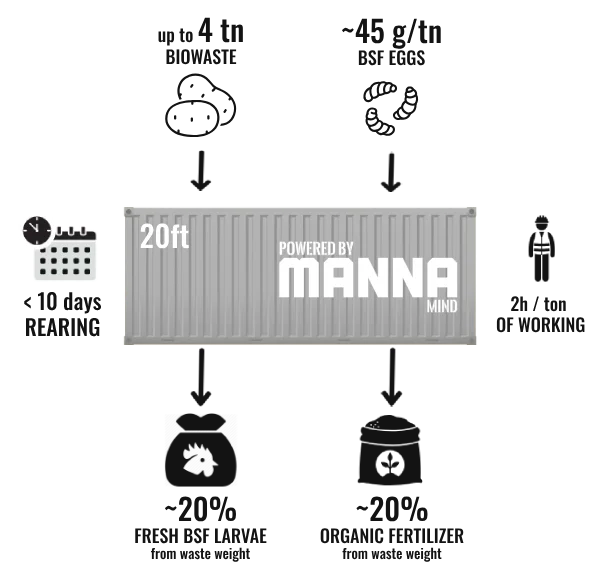
“Optimal climate and dedicated recipe will be converting all organic waste to clean larvae and dry frass, without leftovers from the waste”
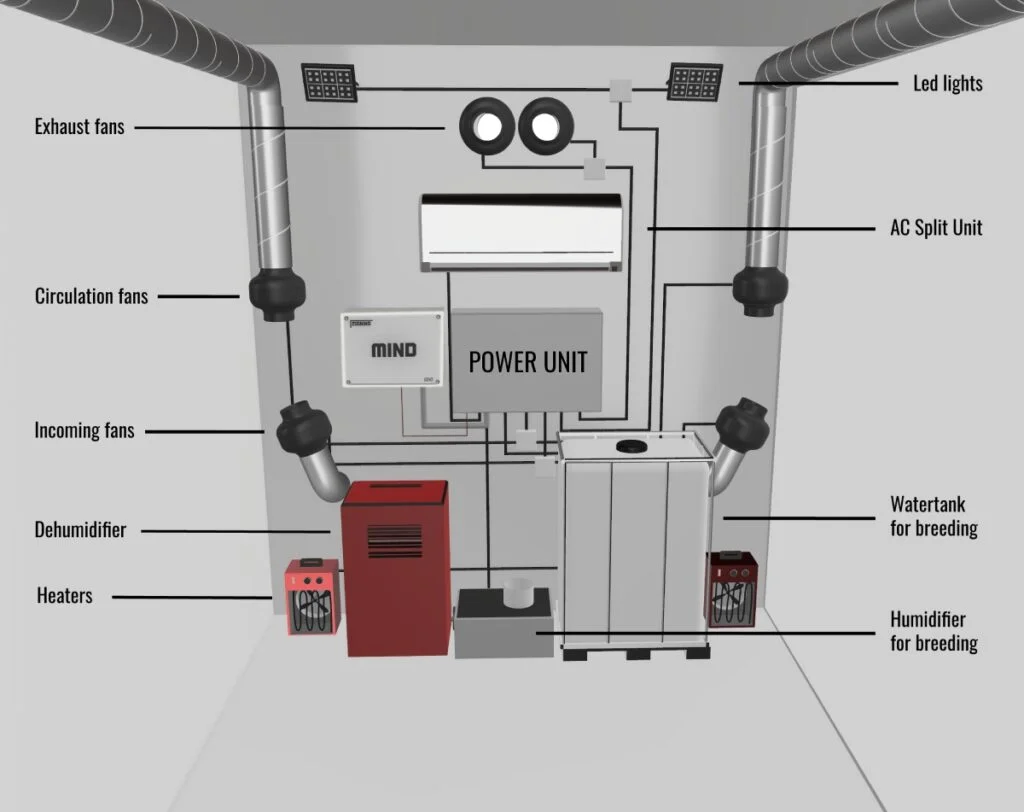
Example of expenses of a pilot farming module
The price of a locally built insect farming module consists of the following components. More detailed list and budgeting tool can be found from Insect Farm Hub
- Structure & insulation
- Equipment & main power unit
- Manna MIND hardware & software
- Insect trays for rearing
- Love cages with breeding lights
- Waste pre-processing tools
- Larvae & Frass separation tools
- Drying equipment
The total cost for bioconversion module without processing tools and equipment should be around 8000 USD depending on the customer’s country, insulation requirements, and the availability of equipment and components.
You can create a budget for a locally built module within the Insect Farm Hub under Learning Center → TECH.
Requirements for the BSF bioconversion container
Shopping list for BSF piloting and testing units
Proper insulation is essential for saving energy and reducing production costs, as it helps maintain optimal internal conditions with minimal energy use. It’s important to select insulation materials that correspond to the external temperature conditions, ensuring the system’s efficiency and cost-effectiveness.
The insulation material needs to be moisture-resistant, such as polyurethane, with all seams sealed and covered. Insulation is necessary in any weather conditions, and using high r-value materials will significantly reduce energy bills. PIR (Polyisocyanurate) or EPS (Expanded Polystyrene) sandwich panels are excellent options to consider for insulation.
Internal airflow is crucial to keeping larvae and flies active at all times. In our tested example installation, we use two long pipes with evenly spaced holes to distribute air uniformly throughout the space.
For ventilation, we use corrosion-resistant or plastic piping with 90-degree elbows to ensure durability and effective air circulation within the container. This setup helps maintain optimal conditions for the insects.
Pilot farming module should be equipped with paired semi-industrial inline duct fans for circulation, exhaust, and incoming air.
Example (Östberg CK160)
Larvae generate significant heat during digestion and movement, making it crucial to effectively lower the internal temperature to prevent overheating.
In compact-sized modules, it’s practical to use cost-effective, consumer-grade, low-power air conditioner split units for high-temperature regulation. These units offer an efficient and affordable solution to maintain the required climate conditions.
AC will be used only for cooling.
During the larvae rearing process, a significant amount of humidity is generated, and it’s essential to prevent water condensation by maintaining an optimal humidity level.
A single-phase semi-industrial dehumidifier (dryer) is highly effective in extracting moisture, ensuring the humidity remains at optimal levels. The recommended capacity for this setup is at least 50 liters per day. This helps to maintain a stable environment for larvae growth and prevent moisture-related issues.
Example (TTK 166 ECO)
Humidifier is essential especially for nursing and breeding spaces but it should be installed also in growing units because it will keep substrate moist enough when larvae are still small.
Small semi-industrial humidifiers can be sourced locally, but it is also possible to assemble one from individual parts using low-cost ultrasonic mist makers, which can be ordered from web shops.
Semi-industrial-grade fan heaters are essential for maintaining a consistent temperature throughout the rearing space. If at any point the temperature drops below 25°C, heating will be required during specific stages of the growth cycle to ensure optimal conditions for larvae development. These heaters help maintain a stable climate, preventing any negative impact on productivity.
Example (min 1 kW)
Basic lighting is essential for maintaining larvae within the trays throughout the entire growth cycle.
Special LED lights designed to mimic sunlight are available for breeding purposes, optimizing mating activities.
The main A/C power unit will be selected based on the size of the space and equipment are used. For example piloting modules we will provide an example list of components, schematics, and instructions for certified electricians to locally assemble the unit.
Example (by Manna Insect)
Rearing production
Stackable insect trays are essential to achieve maximum capacity
Example (600x400x145mm)
Breeding activities
locally build breeding cages, pupa boxes, egg traps and special LED light
- Example (Manna breeding cage design)
- Example (Manna pupa box and egg trap design
- Example (Breeding LED)
Nursing period
Nursing boxes with egg tables
Example (Manna nursing box design)
Separation
There is several possibilities to separate larvae from frass. For small and medium size production one vibrating sieve is enough.
Drying and defatting
There are several methods for drying the larvae, which vary depending on the time and cost ratio.
Manna Insect will provide detailed instructions and how-to guidelines
Other small tools such as weighing scales and crates are necessary for the production process.
One Manna MIND IoT system will manage a single farming module, whether for rearing, breeding, nursing, or a hybrid setup.
MIND technology consists of two main components:
- Hardware (HW): A set of physical modules that control farming equipment and collect real-time data.
- Software & Cloud Services: A locally installed control system that regulates the environment and transmits data to the cloud, allowing users to monitor conditions, analyze data, and adjust parameters remotely.
The MIND hardware components ranges from $600 to $950, depending on the chosen setup, and is available for direct purchase.
The annual subscription for the MIND software license and cloud services is $990 per unit.
Designs from the customers
Manna Insect serves customers in over 30 countries, most of whom have sourced and built their Black Soldier Fly farming units locally with support from the Insect Farm Hub platform and Manna.
Several customers have also customized the Manna Insect reference design to better suit their specific needs and local conditions.
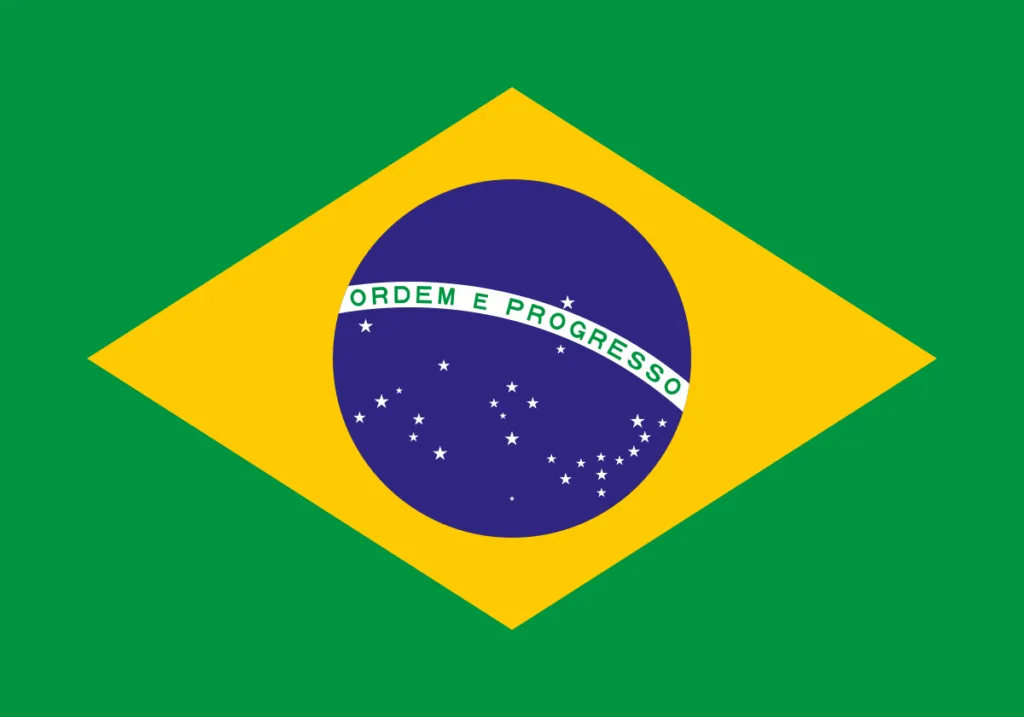
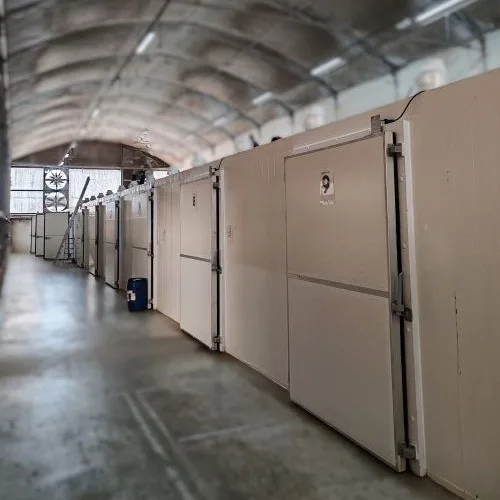
Modular BSF farm in Brazil
Meruoca designed and built their facility entirely locally, incorporating Manna MIND hardware to achieve a bioconversion capacity of 3.5–4 tons. Sustainable waste management is growing rapidly in Latin America.

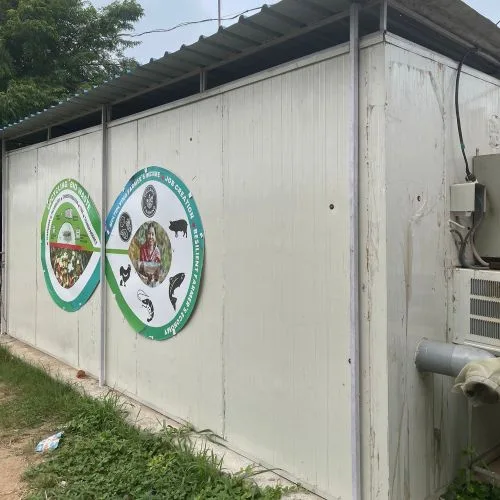
BSF biorecators in India
Insectika Biotech built its facility entirely locally with a Manna MIND GEN2 unit. The current production capacity is approximately 4 tons per day on an eight-day cycle. In 2025, they launched their own fish feed product.
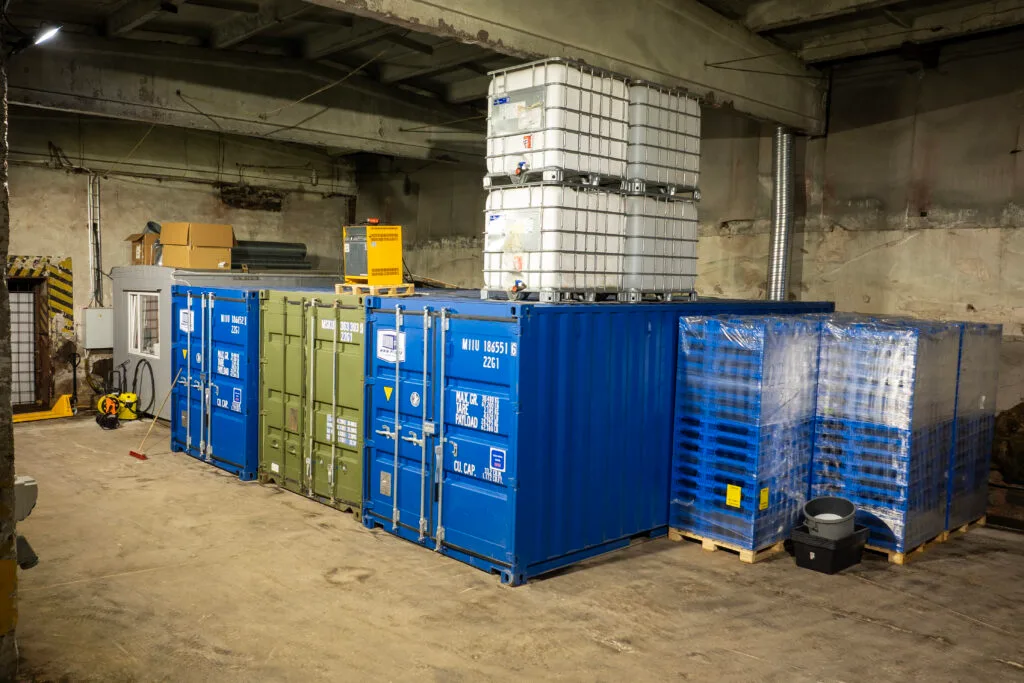
Modular factory in Estonia
Wiggly Feed began scaling its operations less than a year before reaching commercial production of over one ton of fresh larvae per week. They are among the pioneers in Europe producing BSF larvae with a modular and efficient approach.

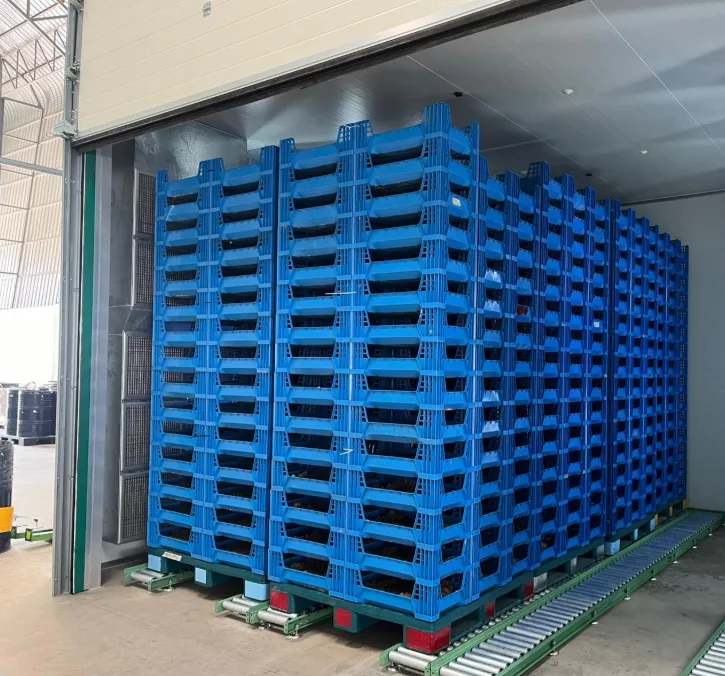
Custom design in Thailand
Flylab started a few years ago with just two locally built 20-foot shipping containers to run trials and pilot controlled BSF production in tropical Thailand. Today, they have scaled their bioconversion capacity to a 9-ton batch size using the Manna MIND IoT system.
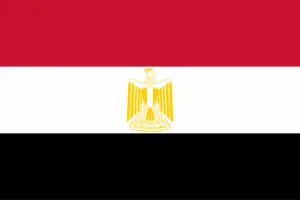
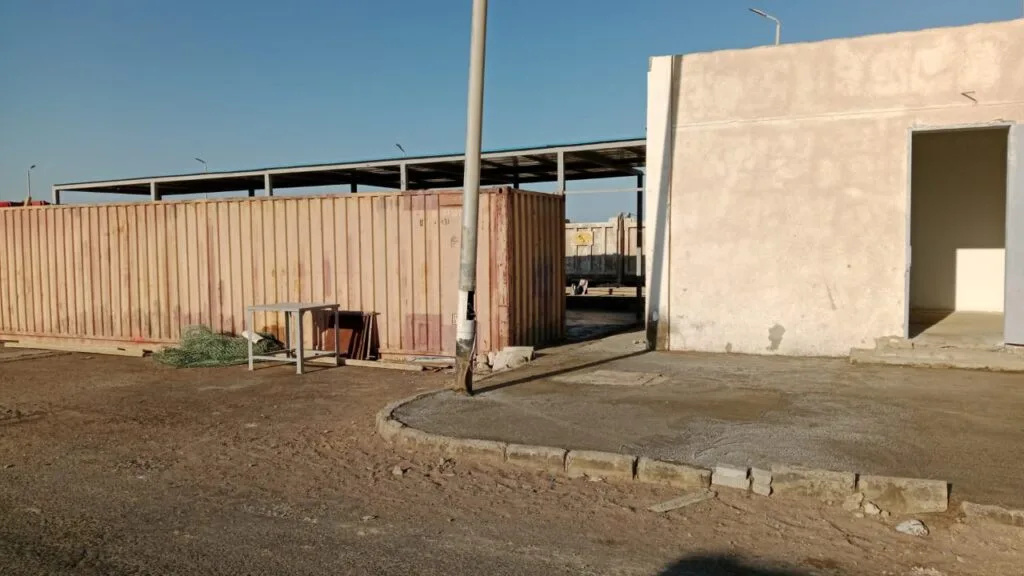
BSF rearing unit in Egypt
Bug Factory Biotech started just six months before scaling up to large, modular waste processing operations in Egypt. Their main focus is managing tons of organic waste across multiple locations to reduce landfill use and produce valuable products for both local and international markets.
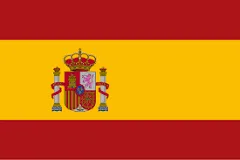
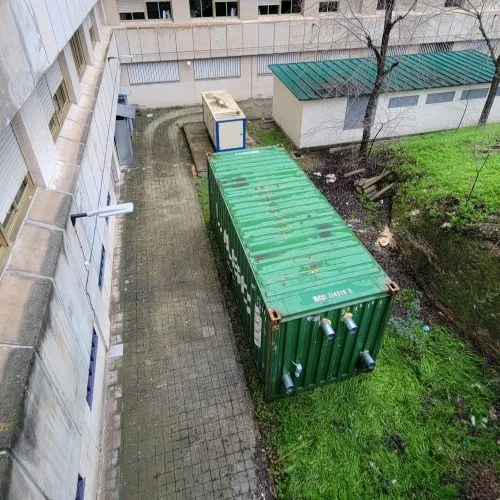
R&D containers in Spain
Insect Biotech is dedicated to converting agricultural residues into sustainable protein, oil, and fertilizer using Black Soldier Fly larvae. They kick-started operations in early 2024 with two ready-to-use Manna Insect containers and are now planning to scale up in Spain to process several tons per day.
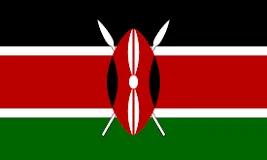
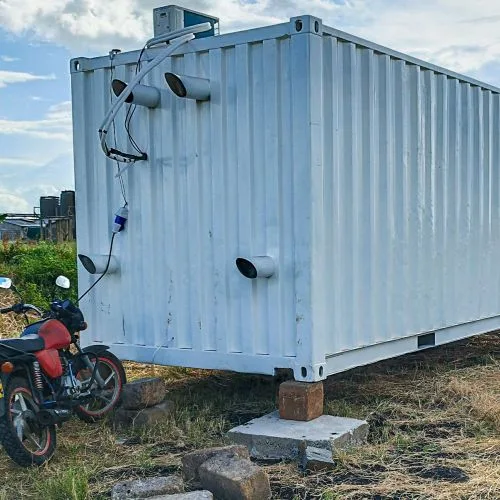
BSF rearing unit in Kenya
Built by local subcontractor with
MIND GEN2 UNIT
Processing capasity 3-4tn

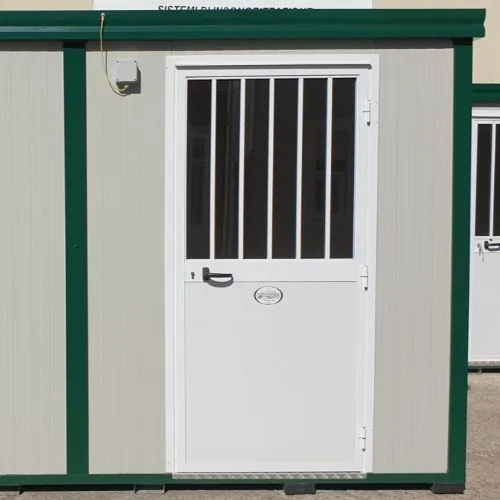
10ft size R&D container in Italy
Self-designed hybrid module for R&D purposed and trials
Capacity of doing full cycle

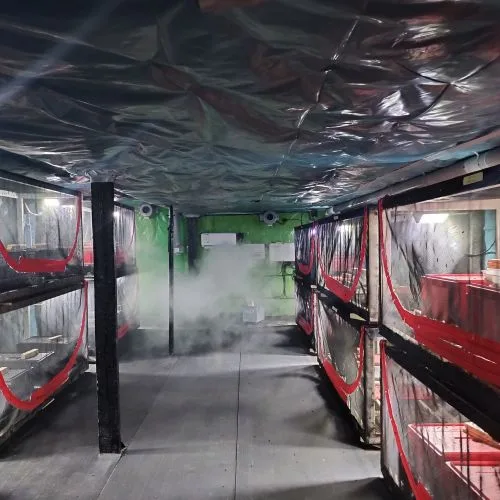
BSF mating room in England
Built fully locally with
MIND GEN2 UNIT
Capacity of 18 love cages with 54 cubic meter space

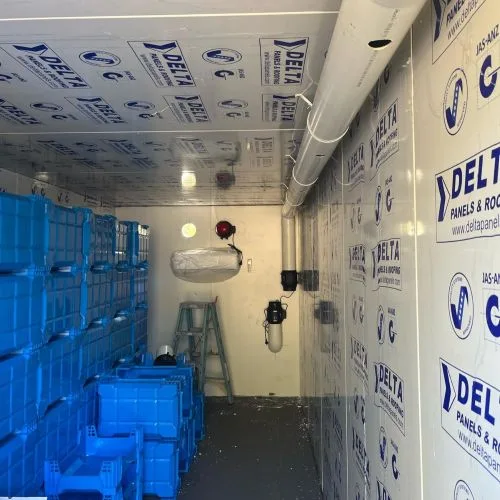
Rearing container in Australia
Locally sourced and build Manna reference container with MIND GEN2 unit
Addition to these few exampes Manna Insect have built or support to built black soldier fly farming module for in
Austria, Colombia, Finland, Germany, Israel, New Zealand, Norway, Saudi-Arabia, Sweden, USA and Zambia.
Manna Insect MIND IoT technology and flexible solutions are accessible worldwide, with new customers and partnerships in additional countries coming soon!

